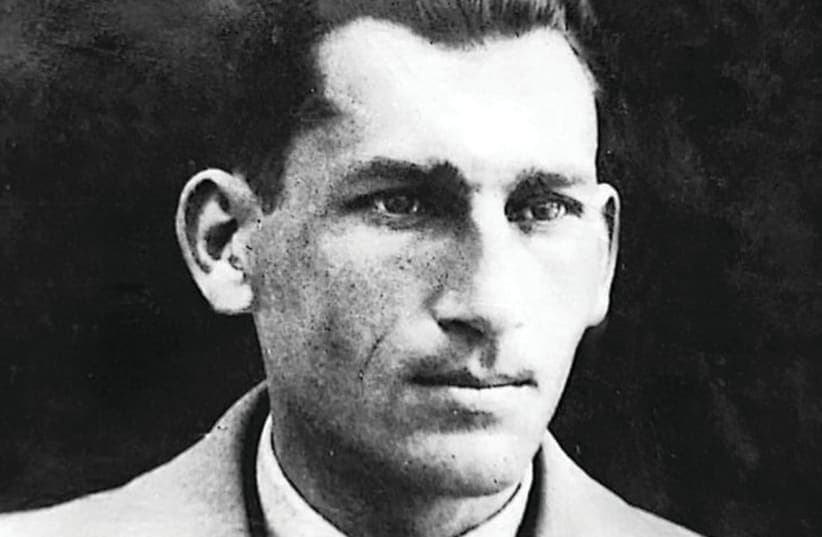Revisiting the Poetry of Avraham Stern
A Nation Built on the Will of the Fallen: Unpacking the Vision Behind 'Unknown Soldiers
Avraham Stern’s iconic poem constructs the idea of homeland not as a given, but as a posthumous vision - built in silence, sacrifice, and legacy

The poem "Unknown Soldiers" presents the building of the homeland as emerging from the will of the fallen - but to understand how, we must begin with the text itself.
1. Unknown Soldiers
We are the unknown soldiers, without uniforms,
Surrounded by terror and shadows of death.
We are drafted for life, not by decree -
Only death itself can offer us release.
In days stained red with riots and blood,
In the dark nights of despair,
In towns and in villages we raise our flag - On it:
Defense and Conquest declared.
We were not forced like slaves with whips,
To spill our blood on foreign lands.
Our will: to live forever as free men!
Our dream: to die for our homeland.
From all sides, fate lays traps and walls,
Cruel barriers across our path.
But spies, prisons, enemies of all kinds -
None can halt us in our wrath.
And if we fall, in streets, in homes,
And are buried silently in the night,
Thousands more will rise in our place,
To guard and defend what is right.
With mothers’ tears for sons now gone,
And with the blood of pure, slain babes,
We'll glue our bodies like mortar to stone -
And raise our homeland from its graves!
The first stanza opens with a clear declaration of mission and loyalty: “We were all drafted for life.” Yet the nature of that loyalty remains vague. The threat is described - “around us, terror and shadow of death” - but the goal is not. The emphasis lies not on a concrete cause, but on the commitment of the soldiers themselves. This focus on the collective subject, establishes a portrait of soldiers defined first and foremost by their existential position.
In the second stanza, a foggy picture begins to take shape. This obscurity is a literary and aesthetic tool, mirroring the blurred identity of the "unknown" soldiers. Only through their lived experience - the red days of blood and black nights of despair - does their mission become fully apparent: “defense and conquest.”
Notably, unlike in Stern’s later poem “Behold, You Are Sanctified to Me”, the homeland itself is not explicitly mentioned until the final stanza. Its late appearance implies that the homeland is not a given, but something that emerges from the poem itself - an imagined space constructed through the narrative and idealism of the poem.
The third stanza further sharpens the identity of the fighters. They are not slaves - “our will: to always be free” - nor are they strangers in their own land. Rather, they are a people seeking liberty and, ultimately, willing to “die for our land.” This personal, almost religious tone intensifies the sense of sacred obligation.
The fourth stanza plunges the reader into despair and hardship, reflecting the soldiers’ grim reality: spies, prisons, and a path filled with obstacles. Yet, the verse insists, “none can stop us.”
Here, the poem reaches a pivotal point. The line “and if we fall in the streets, in the homes…” marks a transition: from struggle to legacy. The idea of a quiet, unceremonious burial gives way to the image of thousands rising to take the fallen’s place - “to protect and guard forever.” This shift redefines defeat as transformation. The nation will be built not in defiance of death, but from within its silence.
This vision culminates in the final stanza, where Stern moves into a kind of post-mortem reflection. The poem adopts a spectral tone. The speaker, perhaps now a ghost, calls on those who remain to take “the tears of bereaved mothers” and “the blood of pure infants” and use them - literally - as mortar for constructing the homeland. The physical becomes symbolic. Loss becomes foundation. The homeland is no longer just a hope or goal - it is a sacred structure built from the ultimate sacrifice.
This framing of homeland through war and martyrdom - found in Stern and in the works of Uri Zvi Greenberg - has been a subject of sharp criticism within mainstream Zionist circles, especially during the Yishuv period. For many, this idealization of sacrifice bordered on the mystical, evoking a national ethos rooted more in death than in life.
As a standalone work, Unknown Soldiers gives us a vision of the homeland formed in blood and silence. Only in the final lines, and only as a legacy, does it appear. And in that sense, Unknown Soldiers is less a war poem and more an elegy of national becoming.